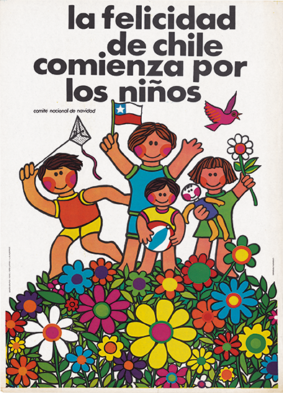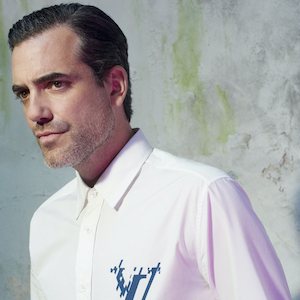Sterling: 52 Remarkable Women Debunking the Myths About Feminism
By Rebecca Irvin
Feminists Don’t Wear Pink and Other Lies, curated by Scarlett Curtis
I remember one Christmas, at about seven years old, being given a dressing-up box. It was one of those trunks that comes with a whole set of costumes, meant to offer children a full range of characters and personas to adopt by donning the appropriate attire. In my box, there was a ballet tutu, two princess dresses, a fairy costume and a dalmatian outfit. This curated selection of visual identities was obviously, with the exception of the somewhat incongruous dog costume, put together according to highly problematic, gendered assumptions about what little girls want to wear and who they want to be.
At seven years old, the nuances of sartorial gendering and identity were, of course, beyond me. But, as a grubby, self-identifying ‘tomboy’ who shaved the hair off barbies and gave them marker-pen tattoos, I felt an immediate aversion to all the pink, silky, glittery, floaty things that the trunk contained. At the same time, I loved the way the fabrics felt, I thought the sparkly wand and tiara were beautiful and I itched to see those skirts flying out around me as I spun round and round. I chose the dalmatian costume.
I realise now that my mixed horror and delight at the sight of those costumes wasn’t due to an innate dislike of pink, or fairies, or princesses, but to a fear of being branded a ‘girly girl’ and, as a consequence, being limited in what I could do.
Looking back, this must have been one of the first times I recognised that the way I dressed sent a powerful message out into the world. If I wore shorts and t-shirts, shunned glitter and tiaras and left my hair messy, it would be assumed that I didn’t mind getting dirty, loved climbing trees, didn’t care what I looked like and hated all things ‘girly’. If I wore a princess dress and butterfly hairclips, it meant that I liked playing with dolls and plaiting hair, screamed if I encountered a spot of dirt, and that I was made up, according to the little-girl formula, of sugar-and-spice-and-all-things-nice. Essentially, if I wanted to do what boys did, I had to dress like one (the very idea of a tomboy, which my seven-year-old brain had latched onto, is reductive for this reason), the only other option being to dress like a dalmatian.
I didn’t hate the things that were labelled ‘girly’, I hated what they stood for in other people’s eyes. The fact that the toy company who put together the dressing-up box had opted predominantly for the traditionally girlish rather than offering a variety of costume choices is a problem all of its own; but more than that, for me it was an issue of the implications that went along with the outfits, an issue of how I would be perceived if I wore them.
Feminists Don’t Wear Pink and Other Lies is a collection of essays curated by writer and activist Scarlett Curtis. Now a Sunday Times bestseller and shortlisted for the Young Adult Category at the National Book Awards 2018, the book dispels the myth that what we wear, our personal likes and dislikes, how we feel most comfortable and what we enjoy should correspond exactly with a single, monolithic identity – an identity which is, itself, often just the product of prejudice and narrow-minded preconceptions. The book, comprised of 52 different voices from activists, writers and comedians to actresses, directors and entrepreneurs, puts the power back into the hands of individual women by asking the crucial question: what does feminism and being a woman mean to me? As Scarlett herself says, ‘This is not a guide on how to be a perfect feminist … This book is a collection of women’s stories’.
Some of these stories come from women whose names we all recognise: Hollywood stars Emma Watson, Saoirse Ronan, Evanna Lynch, Gemma Arteton, Keira Knightly and Jodie Whitaker, as well as the fantastic Ladybird supporting actress Beanie Feldstein. Some come from the leaders of key activist movements both in feminism and in wider, intersectional social campaigns: Alicia Garza, who founded Black Lives Matter, Nimco Ali, campaigner for ending female genital mutilation and director of the Daughters of Eve non-profit organisation, and Alice Wroe, the creator of the Herstory project. Some come from women upholding feminism in contemporary culture, such as journalist and author, Dolly Alderton, and comedian and creator of the staggeringly successful podcast The Guilty Feminist, Deborah Frances-White. All come from unique, inspiring and exceptional women.
The collection is published in collaboration with Girl Up, an organisation dedicated to equipping girls and women all over the world with the skills and resources to take active leadership roles in the march towards gender equality. Girl Up teaches women, and young women in particular, how to be advocates and activists, how to create platforms for discussion, how to be heard and how to own their narratives. Founded in 2010 by the United Nations Foundation, the organisation now has 2,500 Girl Up Clubs in over 100 countries and has raised millions of dollars in support of local and global programs committed to effecting real change for women. Girl Up will receive royalties from the sales of Feminists Don’t Wear Pink and Other Lies so that they can continue to pursue their important global outreach initiatives in leadership development and gender equality.
If only Feminists Don’t Wear Pink and Other Lies had been around when I was seven (not that everything in the book is entirely appropriate for a seven-year-old), I might have had the courage to don pink satin and tulle without worrying about its impact on my meticulously maintained can-do-girl image. Today, anyone who knows me is familiar with my extensive collection of hair accessories (from pink bows to red heart-shaped clips), my penchant for brightly-coloured eyeshadows and my compulsive habit of buying old bridesmaid dresses on eBay, which arrive puff-sleeved and covered in a froth of lace, frills and ruffles. Not all of these are practical for everyday casual wear, but I don’t feel less powerful or less feminist in any of them, especially the pink ones.
Feminists wear pink. Feminists wear blue. Feminists wear clothes. Feminists go nude. Feminists wear make-up. Feminists go bare-faced. Feminists fall in love with men. Feminists fall in love with women. Feminists shave off every last inch of body hair. Feminists grow out their armpit hair. Feminists wear heels. Feminists wear flats. Feminists cover their hair. Feminists shave their heads. There is no such thing as a perfect feminist but, as this wonderfully inspirational and celebratory book shows us, what does exist are the unique, individual experiences which intersect and overlap to weave the multi-coloured, multidimensional fabric of the movement we call feminism.








